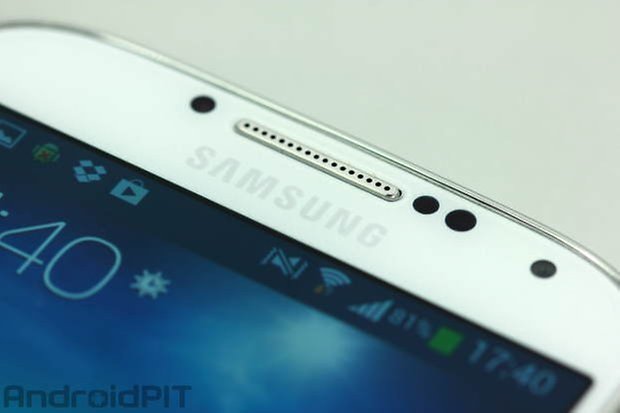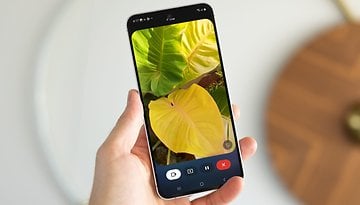64-bit processors for smartphones: what you should know [updated]
![64-bit processors for smartphones: what you should know [updated] computer cpu](https://fs.npstatic.com/userfiles/2692059/image/Blog/computer-cpu-w810h462.jpg)

When Apple presented the iPhone 5s with a 64-bit processor last year we all knew Android devices would be following their lead with this technology. 64-bit CPUs have been a standard for years in the desktop domain, but what are the real advantages that this type of processor will bring to smartphone users? Update: with the announcement of the first 64-bit ARM processor for Android, the Nvidia Tegra K1 Denver, we thought we'd refresh your memory on what 64-bt computing is all about.

64-bit quick facts
CPUs count with rows of numbers made up of zero's and one's. Processors with a 64-bit architecture are in a position to handle a row of numbers made of 64 digits during one single clock pulse. Or to rephrase: it can handle 64-bits (8 bytes) of data information at double the speed as it takes a 32-bit (4 bytes) processor to handle the same amount of data.
Simply put: 64-Bit CPUs can handle more information at once, but this performance is task-specific and RAM-dependent.
A good simple analogy, thanks to reddit user candre23, is to think of a desk that you have covered in arts and crafts. You’ve got all your materials laid out across the desk (scissors, paper, magic markers, and the like) and you’re finding that with all this stuff it doesn’t leave you with a ton of room to actually do work. Moving from a 32-bit to a 64-bit architecture is like getting a much bigger desk and being able to do bigger art projects and organize your material much better. Sure, it is a heckuva lot more complicated than that, but it’s a good simple explanation for what increasing the bits does for your computer/mobile device.
How does the hardware and software work together?
Hardware isn't the only factor when it comes to a 64-bit system: software also plays an important role. Software also needs to be constructed properly for this architecture in order to provide the processor with the necessary data. Only when both of these requirements are met will a 64-bit architecture be able to deliver the expected advantages.
The advantages of 64-bit
This processor type can compute larger integer values. An integer is a kind of data that saves integral values, in other words zeros and ones. Processing larger values will then result in certain advantages for graphics (for example with user interfaces and games), multimedia information or 64-bit file systems. Another advantage is that it will be able to address more than 4 gigabytes of RAM (the maximum for 32-bit systems). While this is still a moot point for mobile devices (I would absolutely LOVE a smartphone with 4 GB of RAM) it is definitely paving way for this improvement in the future.

The disadvantages of 64-bit
Compared to 32-bit programs, there is a significant disadvantage: due to the doubled number length that is allocated to the 64-bit format, more storage (RAM, cache and memory) is used than with its 32-bit counterparts. This can become a problem, particularly for smartphones, since they are often greatly limited in resources when compared to desktop PCs.
What's more, it really only makes sense to have a 64-bit processor if the programs/apps have been made for this type of architecture. This means extra effort and expense for app developers. It's also important to consider that 32-bit programs when used on a 64-bit system could slow down the entire system in certain situations. The reasons for this is because the 32-bit format will need to be loaded on top of the 64-bit libraries. This would heavily impact the memory as well as the internal storage.
Bottom Line and Forecast
Smartphones are performing better and better and the only logical next step is to develop a modern architecture for hardware and software. Whether you're dealing with complex office software, demanding games or a smartphone used as a computer replacement, the usage possibilities are constantly expanding and switching to 64-bit processors will be a welcome change. For the time being though, this added value still has its limits, but this could change with the next generation of devices down the road, when hardware and software are made to work more fluidly with one another.




















With every passing day, people are experiencing innovations in the field of smartphones and so if you are considering of buying your first smartphone, you must look at it processors, battery life and camera.
Finally, with the 64-bit A7, Apple has made it possible for developers to take the 64-bit apps they’ve written for the Mac and bring them to iOS 7 with relative ease. And that is a huge benefit, indeed.
“Because Apple makes the development environment and has updated those tools for 64-bit architectures, a developer only really needs to recompile their application to make it 64-bit compatible — assuming they haven’t done anything non-standard with their code,” said Howe. “This will not be true with Android, by the way. The Android Java app and native app environment will need support from Oracle, who owns the Java environment, as well as 64-bit support from the Android kernel. Android has a lot more moving pieces to coordinate, and will take longer to go to 64-bit.”
So, while this early transition to 64-bit is most certainly a long-term play for Apple, it’s not without some immediate and important short-term benefits — even without more than 4GB of memory.
Is Google currently working on a 64bit version of Android? Will the version of Android after Kit Kat be 64bit software? How is Apple using 64bit processing without using 4GB of RAM? Does a smartphone have to use 4GB of RAM in order to run a 64bit OS architecture effectively? Huawei has a phone with a 64bit processor, the Ascend D but, its not effective as the Android OS isn't 64bit. I think this desktop architecture makes the most sense in tablets and I think this is Apple's angle turning the iPad into a true desktop competitor. Their App ecosystem for the iPad will tell us if this a necessary step in smartphone computing or just an innovative gimmick on their end.